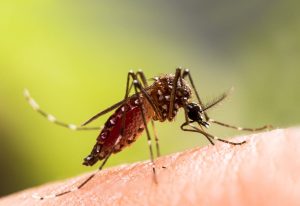Swapping that steak for a fish filet or a veggie burger is not only good for your health, but the planet’s, too, a new study suggests.
The study, published in the American Journal of Clinical Nutrition, ranked various diets based on two measures: nutritional quality and “carbon footprint.”
And overall, non-meat diets came out on top, on both counts.
Researchers found that on average, vegan and vegetarian diets had the smallest carbon footprint — which refers to the amount of greenhouse gases that are churned into the atmosphere in order to produce the foods the diets comprise.
Meanwhile, the pescatarian diet — which includes seafood, but no meat — scored highest in nutritional quality, and was more planet-friendly than diets containing meat.
On the opposite end of the spectrum were two diets currently in vogue: the high-fat, low-carbohydrate keto diet; and the paleo diet, which centers on foods its proponents say were consumed in prehistoric times — mainly meat, fish, eggs, nuts and vegetables.
Those two meat-heavy eating plans, the study found, carried the biggest carbon footprints and lowest dietary quality.
(The keto diet may also be tough on the heart, raising levels of “bad” cholesterol and the risk of artery blockages, according to new research presented at a meeting of the American College of Cardiology).
Experts said the findings may give consumers some food for thought when they’re in the grocery store.
“Most people probably don’t think about the environmental impact when they choose their food,” said lead researcher Diego Rose, a professor and nutrition program director at Tulane University School of Public Health and Tropical Medicine in New Orleans.
That’s understandable, since people today are so far removed from their food sources. “Everything we buy comes from the same grocery store,” Rose noted.
But studies have pointed to many reasons that a diet based on plant foods, and free of meat, is kinder to the environment: less land used for raising and feeding livestock; less air pollution; less energy use; and fewer greenhouse gas emissions that contribute to global warming.
Red meat production has a particular environmental impact — more so than poultry, Rose said.
That has all been well-documented in past research. The point of the new study, Rose said, was to look simultaneously at the nutritional quality and carbon footprints of the diets Americans commonly consume.
To do that, the researchers used data from a government study that asked more than 16,000 U.S. adults to detail what they’d eaten in the past 24 hours.
The large majority — 86% — reported an omnivore eating style, meaning they ate both animal and plant foods. Most of the remaining respondents reported either a vegetarian- or pescatarian-style diet, while less than 1% each ate a vegan-, keto- or paleo-like diet.
The study participants were not asked to give themselves a label, like vegan, Rose said. But, he added, their dietary reports do give an idea of what Americans are really eating day to day.
The researchers rated those real-world diets using two standard measures of dietary quality that award points for eating things like vegetables, fiber-rich grains and lean proteins — and avoiding things like sugary drinks, red meat and highly processed foods.
In terms of nutritional quality, the diets ranked best to worst were: pescatarian, vegetarian, vegan, omnivore, paleo and keto.
When it came to carbon footprint, the list was similar — but vegan and vegetarian diets outperformed the pescatarian diet in planet-friendliness. (Vegan diets exclude all animal products, including eggs and dairy.)
Debbie Petitpain is a registered dietitian and spokesperson for the Academy of Nutrition and Dietetics who reviewed the findings.
She said the study shows that what’s good for personal health is good for the planet, too — which may motivate some people.
That said, Petitpain noted that most people are unwilling to give up whole food groups or adopt a strict dietary identity.
“Luckily,” Petitpain said, “it doesn’t have to be all or nothing.”
People can nudge themselves along, she said, by putting more plant foods than animal products on their plates, and getting a little creative with proteins.
You can start, for example, by substituting a serving of meat each week with seafood — and more affordable choices, like tuna canned in water, do count, Petitpain said. Swapping out a burger for a bean taco salad, or even replacing half of the beef in a burger with mushrooms, are some other tactics.
And just because a diet is technically vegan or meat-free does not automatically make it healthy, Petitpain pointed out: If you’re living on pasta and bread, your diet needs a revamp, too.
In general, Petitpain said, people will benefit from eschewing highly processed foods and “learning how to eat closer to the ground.”
Rose agreed that people need not go vegetarian or pescatarian. He noted that when his team dug deeper into the highly common omnivore diet, two eating styles stood out as healthier and having a relatively smaller carbon footprint.
They were the long-recommended Mediterranean and DASH-style eating plans. Both include plenty of vegetables and fruit, fiber-rich grains, fish and “good,” unsaturated fat, and limits on red meat and processed foods.
More information
The Harvard T.H. Chan School of Public Health has more on planet-friendly eating.
SOURCES: Diego Rose, PhD, MPH, RD, professor, nutrition program director, Tulane University School of Public Health and Tropical Medicine, New Orleans; Debbie Petitpain, MS, RDN, spokesperson, Academy of Nutrition and Dietetics, Chicago; American Journal of Clinical Nutrition, Feb. 28, 2023, online
Source: HealthDay
Copyright © 2024 HealthDay. All rights reserved.

-300x200.jpeg)









-300x241.jpeg)




